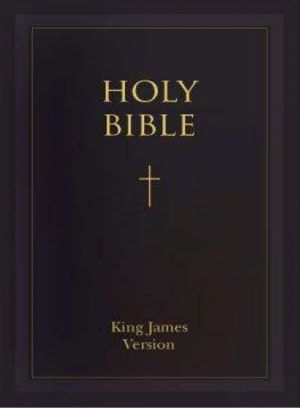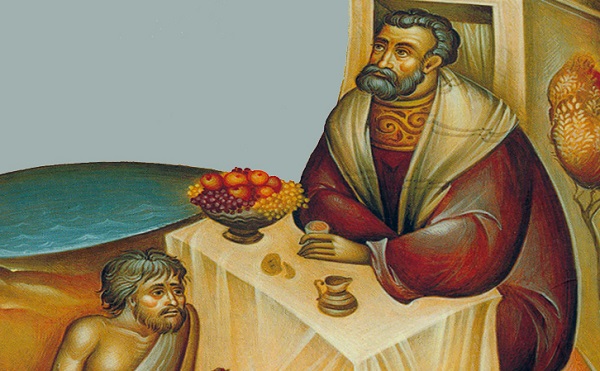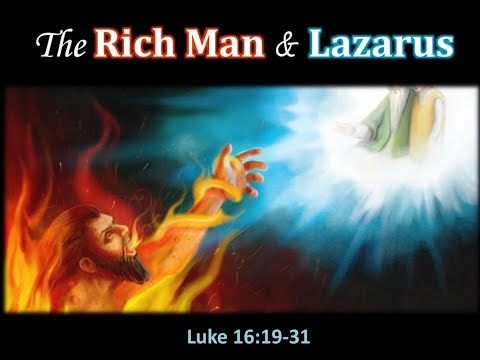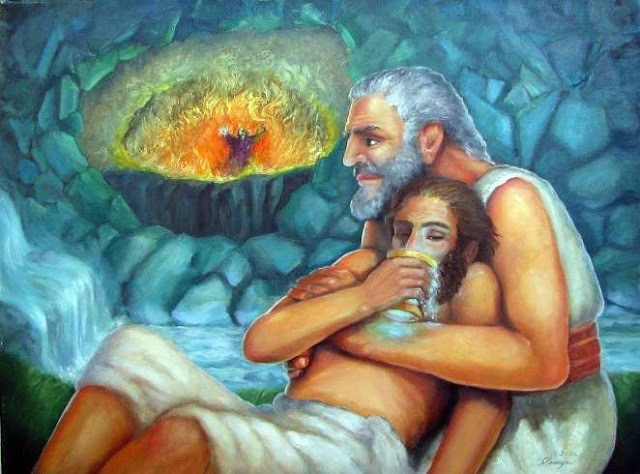Death and Life
The Scriptures have a lot to say about death and life. It addresses these aspects of humanity from the beginning (Genesis) to the end (Revelation). But what about life after death?
What is Life?
According to Nelson’s Bible dictionary, life is “The physical functions of people, animals, and plants. In physical terms, life is the time between birth and death. Because God is the source of life, it is a gift from Him. He first filled Adam with the breath of life (Gen 2:7), and He continues to be the source of all life. ”
What is Death?
Again, according to Nelson’s Bible dictionary, death is “A term which, when applied to the lower orders of living things such as plants and animals, means the end of life.”
Life after Death?
Is there life after death? Well, it depends on whom you ask. Since no one has returned to tell us, there has been much discussion and debate in answering that question.
What Does the Bible Say?

The Bible says in 2 Tim 3:16-17
16 All scripture is given by inspiration of God, and is profitable for doctrine, for reproof, for correction, for instruction in righteousness:
17 That the man of God may be perfect, throughly furnished unto all good works.
“All Scripture”; the Scriptures are well-balanced when approached and applied correctly.
There are numerous Scriptures that address death used by those who support life after death and those who do not. For example, those who believe all of life ends in the grave would use the following: Ps. 115:17; John 5:28, 29; Ps. 146:4; 1 Cor. 15:51-58, etc.). However, these Scriptures address only the physical aspect of death, such as the dead, the grave, the body, as well as the final resurrection. However, other Scriptures shed light on the spiritual aspect of death between dying and the final resurrection.
For example, those who support an existence beyond the grave would use 2 Cor. 5:8
8 We are confident, I say, and willing rather to be absent from the body, and to be present with the Lord. KJV
This Scripture unmistakably affirms that to be away from the body connotes being at home with the Lord. In his letter to the Philippians, Paul also wrote that departing from this life means to “be with Christ” (Phil 1:23 NIV). Notice that He didn’t say that he would rather be dead than alive! He further states in this Scripture that he’d rather “be with Christ, which is better by far.” It doesn’t appear that he is seeking a state of nothing until the final resurrection.
Never the less, these passages have been the subject of much debate over the actual state of believers at death. Theologians call this condition “the intermediate state” between being at home in the body (vs.5:6) and at home with the Lord. He does not address resurrection or heaven in these Scriptures. He addresses these in 1 Corinthians 15:51-54
Since Paul addressed the bodily resurrection occurring upon Jesus’ return and believers being with Jesus immediately after they die, several conclusions have been proposed to explain this transitional state of the believer.
It appears that in recent years, conclusions regarding the disembodied state have been severely criticized. Many of these condemnations are based more on philosophical ideas about a person’s soul than on Scripture. Some of the confusion is due to very little scriptural explanation.
There are three main views of the “intermediate state.”
Soul sleep — Seventh-Day Adventists and Jehovah’s Witnesses hold this view that believes that the soul rests in unconsciousness or oblivion until the resurrection. This view is based on verses where death is referred to as “sleep” (Acts 7:6, 13:36; 1 Cor. 15:6; 1 Thess. 4:13-15, and even Jesus’ words in John 11:11). However sleep is a figurative way of addressing the dead and refers to the physical body and not the soul. Some have even modified this view to say that believers are “with Christ,” but not in a conscious state.
However, Scripture teaches the believer’s immediate presence with the Lord at death in Jesus’ words in Luke 23:43 to the thief on the cross,
“I assure you, today you will be with me in paradise” (NLT) and his final prayer, “Father, I entrust my spirit into your hands!” (NLT) Stephen, the first Christian martyr, said right before he died, “Lord Jesus, receive my spirit” (Acts 7:59).
Purgatory — This is the Roman Catholic view that at death, those who have died in their sins and rejected Christ go to Hades (hell) for eternal punishment; those who died in a perfect state of grace go directly to heaven. Those who are not spiritually perfect go to purgatory for a refining process and purification of sin.
This view has developed mainly from church theologians and church councils rather than the Bible itself, although Catholics have used 1 Cor. 3:15 to justify this view, which reads: “If any man’s work shall be burned, he shall suffer loss: but he himself shall be saved; yet so as by fire.”
Incomplete resurrection — This is the most commonly accepted view of Paul’s words in the New Testament. There is a conscious, personal existence for the believer after death. At death, a believer goes to a place and condition of blessedness. The time interval between the believer’s death and the complete resurrection of the body will be undetectable to the Christian. No anxiety or discomfort will blemish this condition. However, the body will not be in its complete and final form because Paul points to a future resurrection as a specific event (Phil 3:20-21; 1 Thess. 4:16-17), as does Jesus (John 5:25-29). At death, we will transition and assume a different expression or condition of the bodily self; then, at the Second Coming, this will be exchanged or reconstituted as the resurrection body (1 Cor. 15:51-53).
A passage of Scripture illustrates this disembodied state from no other than our Lord and Savior, Jesus Christ. Luke 16:19-31
19 There was a certain rich man, which was clothed in purple and fine linen, and fared sumptuously every day:
20 And there was a certain beggar named Lazarus, which was laid at his gate, full of sores,
21 And desiring to be fed with the crumbs which fell from the rich man’s table: moreover the dogs came and licked his sores.

22 And it came to pass, that the beggar died, and was carried by the angels into Abraham’s bosom: the rich man also died, and was buried;
23 And in hell he lift up his eyes, being in torments, and seeth Abraham afar off, and Lazarus in his bosom.
24 And he cried and said, Father Abraham, have mercy on me, and send Lazarus, that he may dip the tip of his finger in water, and cool my tongue; for I am tormented in this flame.
25 But Abraham said, Son, remember that thou in thy lifetime receivedst thy good things, and likewise Lazarus evil things: but now he is comforted, and thou art tormented.
26 And beside all this, between us and you there is a great gulf fixed: so that they which would pass from hence to you cannot; neither can they pass to us, that would come from thence.

27 Then he said, I pray thee therefore, father, that thou wouldest send him to my father’s house:
28 For I have five brethren; that he may testify unto them, lest they also come into this place of torment.
29 Abraham saith unto him, They have Moses and the prophets; let them hear them.
30 And he said, Nay, father Abraham: but if one went unto them from the dead, they will repent.
31 And he said unto him, If they hear not Moses and the prophets, neither will they be persuaded, though one rose from the dead.
A lot is contained within this passage, and an article could be composed on it alone. But to summarize, this is one of Jesus’ parables. Jesus used them to communicate a spiritual truth, religious principle, or moral lesson.
This parable is the story of a rich man and a beggar named Lazarus. While the rich man enjoyed his luxurious life, the beggar was stationed outside his gates, never invited in by the rich man, only to receive crumbs from his table.
Both Lazarus and the rich man died but ended up in different places. But notice verse 22, “And it came to pass, that the beggar died, and was carried by the angels into Abraham’s bosom:…” Abraham’s bosom is a synonym for the life hereafter and a place of rest and tranquility—“comforted” (vs. 25).
According to the Old Testament, when an individual died, he went to be with his fathers (Gen 15:15; 47:30; Deut. 31:16; Judg. 2:10). The patriarch Abraham was regarded as the “father” of the Jews (Luke 3:8; John 8:37-40). At death, therefore, the Jew went to his forefathers or, more specifically, to join “father Abraham.” As a child of Abraham, Lazarus gained closeness to Him as a fellow beneficiary and companion of Abraham. The only use in the Bible of “Abraham’s bosom”
is this parable.
A great gulf or chasm divided him from the rich man, who was being “tormented” in the flames of hell. The Greek word translated as hell is Hades, the place or state of departed souls. In the King James translation, it is also translated as grave (1 Cor. 15:55).
The Pharisees deemed wealth to be evidence of a person’s righteousness. Jesus troubled them with this story where a diseased beggar is rewarded, and a rich man is punished. However, God’s judgment is just no matter the social status. Therefore, no matter how much material wealth one has, God sees the heart.
Another moral of this story is that it matters how we live our lives on earth, which determines our eternal destinations. However, within this story is another precept; there is a spiritual
existence that is initiated when we die. There is no contact with the natural world. Notice that when the rich man requested Abraham to send Lazarus to impart a warning to his household, he was refused (vss. 27 & 28). There is no contact will the dead. Once death has occurred, that is the end of the story (Eccl 9:10).
Jesus Christ, Himself delivered a message about the eternal gateway of the lost and the saved in this parable. Having come from eternity, who else would be more proficient in the things of the spiritual world and acknowledge that there is a veil that separates this present world from the unseen? With His divine knowledge, He could speak with authority of the afterlife.
The contrast between the eternal abodes of the lost and the saved in this parable is colossal. Although Jesus’ parables were stories, they were factual principles used to illustrate a point for teaching. They were not fairy tales. Jesus would not have said that “…the beggar died, and was carried by the angels into Abraham’s bosom:” if that was not factual. Jesus would never mislead anybody or tell a lie (Numbers 23:19).

Let’s look at more of Jesus’ sharing of eternal destinies, Matt 10:28
28 And fear not them which kill the body, but are not able to kill the soul: but rather fear him which is able to destroy both soul and body in hell.

This Scripture containing the words of Jesus unambiguously illuminates the point that there is the “soul” and the “body.” The Scripture acknowledges that the body dies, but the soul does not. According to the Scripture, if an individual kills a body, the soul continues “but is not able to kill the soul.” Only God “is able to destroy both soul and body in hell.” So, if the soul is not destroyed, where does it go until the resurrection? [Answers and comments can be left below]
Jesus’ point for His disciples was not to be afraid of persecution from men but to be afraid of God only.
[Other Scriptures to consider: Psalm 146:4, Ecclesiastes 12:7, Hebrews 9:27]
What is the Soul?
The Greek word translated as soul is psuche (psoo-khay’) which means breath and, by implication, spirit.
According to Nelson’s Bible Dictionary, Soul is “A word with two distinct meanings in the Bible:”
1. That which makes a human or animal body alive. This usage of the word soul refers to life in the physical body. The best example of this usage is those passages in the New Testament in which the Greek word for soul is translated as life. “For whoever desires to save his life [soul] will lose it,” Jesus declared, “but whoever loses his life [soul] for My sake and the gospel’s will save it. For what will it profit a man if he gains the whole world, and loses his own soul?” (Mark 8:36-37).
This idea is also present in the Old Testament. For example, the soul of a dying person departed at death (Gen 35:18). The prophet Elijah brought a child back to life by stretching himself upon the child three times and praying that God would let the child’s soul come back into him (1 Kings 17:19-23).
2. The word soul also refers to the inner life of man, the seat of his emotions, and the center of human personality. The first use of the word soul in the Old Testament expresses this meaning: “And the Lord God formed man of the dust of the ground, and breathed into his nostrils the breath of life; and man became a living being (soul)” (Gen 2:7). This means more than being given physical life; the biblical writer declares that man became a “living soul,” or a person, a human being, one distinct from all other animals.
Therefore, only God can deliver the soul and life, and only God can destroy it.
Conclusion
In the final analysis, Christians can only affirm precisely what the Bible says: there is the body, and there is the soul. The body, upon death, goes to the grave, and the soul and spirit transition and commences an eternal journey. How we live our lives determines whether we enter a place of rest or a place of torment until the time of the final judgment.
Amen
So what do you think? What happens when we die? Your questions, comment, and concerns are welcomed below.
Blessings

This is a fantastic article on life and death from a Christian point of view! It’s always fascinating exploring how various religions think about life and death. I actually believe that one of the best parts about being religious is having peace of mind as to what happens after death. It allows you to live life with good direction.
Yes, Kevin, it also gives peace of mind that we have a choice of what happens to us after death. It all depends on how we live our lives.
Thanks for commenting!
I often hear people say that the question of life after death is one question that can only be answered by someone who personally experienced it. This just goes to say it still cannot be proven because as you said, no one died and came back to actually prove it’s true.But if we believe the Word of God, we have the assurance of life after death. You mentioned several of the Bible verses that speak of this truth and we know we can trust them because it’s God-breathed. Indeed, Christians disagree that when believers die they immediately go into the presence of the Lord. Interestingly, they all use the Scriptures to justify their claim. I personally believe that Paul’s words should be taken at face value when he said, “To e absent in the body is to be present with the Lord.” What else did he mean, right? Physical resurrection takes place in the future but the believer’s soul and spirit immediately get to enjoy God’s presence in a disembodied state. It’s because we have the hope of a future resurrection, we can rejoice even if at times we suffer while we live on earth. By the way, what’s your take on the use of scriptures such as Ecclesiastes 9:5-6 to prove the theory of soul sleep?
Greetings, Alice;- Yes, I do indeed believe what Paul said should be taken at face value. He didn’t say that he’d rather be dead or alive!
As for the Scripture in Ecclesiastes 9:5-6, It doesn’t seem to confirm life after death but a comparison of physical life with death. After we die, we cannot change what we have done or do what we have not done.
Our hope in the future resurrection does indeed help us endure our trials on earth. 2 Cor. 4:17 says, “For our light affliction, which is but for a moment, worketh for us a far more exceeding and eternal weight of glory;”
The troubles of this world are an extremely light burden compared to the eternal weight of glory with our father. Millions, billions, and trillions of years do not even compare to the length of our finite time on earth.
Thanks for commenting!
I guess I am a little confused about this article. The main meat in this article is based on if there is a purgatory or intermediate sleep, etc…Is your hope to convey what the Bible says about death and resurrection? Who is the intended audience? If you are writing to people well-versed in the Bible, then the article may work; however, if you are trying to reach people who need Christ, they won’t understand where you stand (at the beginning) and leave the blog site early on. A couple comments.1. I think using KJV will hinder the article because most people are not going to be familiar with the style and won’t fully understand what is being said. 2. If your intended audience is not the small group from church, I would cite your sources and your theologians, as well as include sources from outside of the Christian realm. 3. State your belief up front and then explain why you believe it. You are trying to educate someone, and they are going to want to know what you believe before diving into the content of your blog. I hope that this helps. It is coming from a heart that understands your plight and I would love to see your blog reach others and help them the way you intended.
Hi Kelly, – Many thanks for your insightful comments.
The hope is to convey what the Scripture says about death and the subsequent state thereafter before the resurrection. The intended audience is whoever is seeking the truth on this matter. I agree that new believers may not fully understand the article, but there are other articles on the site that they can relate to. We all must be fed.
I use various translations, but mainly King James. However, each Scripture inscription is linked to a modern translation when the mouse cursor is placed over it.
My aim is not necessarily to express my personal beliefs but to address issues based on Scripture which is my source.
Thanks again for commenting!
Life and death are two important phenomenon that man has come to live with. The most amazing part is that we dont have control over it. With respect to life after death, the bible says after death, it is judgement. So there is lofe after death. And since man is Gods breath, it is eternal. Man will live for ever, after death there is life. But the question is how will you spend it.
Yes, Parameter, how we live our lives presently will determine how we will spend eternity.
Thanks for commenting!
it is nice to read a good Christian article about life and death. I especailly like your summary of the parable of the Rich Man and Lazarus as i am always curious and interested in other peoples interpretations of a parable. And this one is such a powerful one. Thank you for sharing and reminding me of the importance of how we live our life here on earth, because eternity is what really matters.
Yes, for sure, Alison, how we live now determines our eternal destiny. The rich man’s demise cleared demonstrates that fact.
Thanks for commenting!
Hey Nathaniel, I certainly believe in our God and Savior, and the time is coming that corrupt people in our world will get their punishment for being so. This is a time coming that has been predicted in the bible. However, I don’t think your site will do well by your content reflecting your political views. Everyone has their opinions on what is happening in the world we live in, so if by chance you offend someone because they don’t have the same views, they won’t visit. Chet
Greetings, Chet, there is nothing political about this article. To the contrary it is based on the Word of God that is spirit breathed.
Thanks for commenting
Thanks for this thought-provoking post. My personal interpretation is similar to that in which you described as the Christian, upon death, is with our Lord in spirit instantly. The bodily resurrection, or completion of the resurrection for believers where they will have both eternal spirit, mind, soul and body is yet to come upon Jesus’ return. My own close encounter with death was a blankness, nothing. Like being in a sleep. I was in an induced coma. I never died and experienced what some of the scripture here describes. But it was an experience that I have contemplated many times.
Greetings Dale – I’m glad to know that you survived your ordeal, praise God 👏 When the time comes, we will be with the Lord!
Thanks for commenting!
It’s interesting to read your insights into life and death from a Christian point of view. I can’t imagine why people would sign up for a religion that thinks it’s okay for non-followers to be subjected to eternal torment. Pretty dark stuff.
I don’t totally agree with your views and interpretations, but as this challenging subject leaves me with no direct evidence to prove you wrong (or right), we’ll have to agree to disagree.
Actually, I don’t agree or disagree because you haven’t expressed your view or interpretation. But thanks for commenting!
Hey there,The topic of death and life is a complex and often difficult one to discuss. It can evoke a wide range of emotions and perspectives. However, it is an important conversation to have as it touches on the fundamental questions of our existence and purpose. From a religious or spiritual point of view, death can be seen as a transition to a new phase of life, while others may see it as the end of existence. Regardless of one’s beliefs, it is important to consider the impact that death has on our lives and the lives of those around us. It can serve as a reminder to cherish the time we have and to make the most of it.Marios
Amen, Mario’s, we must make the best of the time we have living as God would have us to live.
Thanks for commenting!
Hi Nathanial. It is good to hear from you again. This particular statement stood out to me – “Is there life after death? Well, it depends on whom you ask. Since no one has returned… Are you sure that no one has returned? There are stories of people dying and returning. It is called near-death experience, also known as clinical death; Clinical death – when a person’s heart stops pumping blood. They’re still capable of being resuscitated.
Hi Faye – My statement, “since no one has returned” was in reference to those who have been dead for an extended period of time. I am aware of the experiences you are referring to however, near death experiences are just that, near death. Thanks so much for commenting!
Reading your insight, from a Christian point of view, into what is life and what is death, is very interesting. As you say, nobody has returned from death to tell us if there is really an afterlife, and if so, what it is like. So it is debatable as to whether there is an afterlife.
But having being brought up in an extremely religious Christian family, I do believe there is life after death. Although I am not sure as to what form it would take. Do you think that different religions have different takes on whether there is life after death and the form it might take?
Hello, LineCowley – Different religions definitely have different perspectives on life after death. For example, some believe in reincarnation. However, we Christians have the Scriptures to guide us in this area which reads in Heb 9:27, “And as it is appointed unto men once to die,but after this the judgment.” There is no indication in the Scriptures to support reincarnation. The Scriptures are our guide in this area as well as others.
Thanks so much for commenting!
I found this article very enlightening to say at best. I’ve been familiar with this topic for some time, and something to take into light.When I think of death, I believe of “coming to peace”. Depending on how my life will end, I hope that I’ll be contempt and satisfied with the end of my life.I used to be religious when I was younger; however, my views have changed. I happen to be more spiritual and believe that things happen for a reason.Although I don’t agree with everything in this post, there were some good parts to think about. So I appreciate what you went over.Thank you for sharing this helpful article.
Thanks for commenting, Eric!
I like to believe that when we die, our spirit does go to ‘another place’. I don’t think it’s as simple as Heaven or Hell. What are your thoughts? Do you think there is a Heaven or Hell? I read the other day that scientists now have recordings of what happens when you die. I know that there’s a rush of hormones and drugs that enter the brain. Maybe its to sen you to wherever you’re going to next.
Hello Ryan – Yes, I believe there is a heaven and a hell; the Scriptures prove it. However, those are the final destinations after the final judgment. In the meantime, our spirits rest in a state of rest or unrest, as illustrated in the parable of the rich man and Lazarus mentioned in the article.
Thanks for commenting!
Nathaniel, this is a clean website and it easily flows. I like where you put your affiliate disclosure as a page along your header, that’s something I might consider. I have mine at the top of all my posts. You have a lot of posts and articles already, which is impressive. I also like your placement of the Amazon link for the book. Your table of contents is laid out nice and I link that you have links to the bible verses you are writing about. Good Job!
Thanks for commenting, Scott.
I enjoyed my readings on this site, which were well-grounded in easy-to-follow scripture references… The subject is relevant to all, believers and non-believers, and particularly in society’s present troubled state, with unavoidable moral challenges everywhere, facing everyone, like it or not. Even if one does not need to be a believer to choose good over evil (some of the most moral people are not believers), for those of us who are believers, scripture is a great comfort, besides having literary beauty. I think more and more people are looking for ‘help’ and spiritual guidance, as well as moral support… Please keep the insights coming!
The world certainly needs to head to the Scriptures.
Thanks for commenting, Guenady!
Hi Nathaniel, just in life, or on the minds of everyone I believe. The only concern I have about your article is that the end of your conclusion when you stated how you live, your life will determine where you end up, let me say in a believer in Jesus Christ, if you do not except him as Savior and repent of your sins you were going to spend your life in hell. If you confess him as your savior, you will spend eternity in heaven with him. The Bible says no what is good no, not one. So being a good person is not going to get you there. Other than that the articles very good. Thanks for sharing.
Hi Russell – The statement you are referencing includes whether we are living in Christ or not, which reads, “determines whether we enter a place of rest or a place of torment until the time of the final judgment, ” This truth is apparent in the parable of Lazarus and the rich man.
Thanks for commenting!
Grief can be holding on too tightly or standing still in the face of life. But in this thought-provoking article, we explore the idea of life after death as seen through Scripture and personal experience. From 2 Corinthians 5:8 to Philippians 1:23, we realize that our time here on Earth isn’t all there is — there is a beautiful hope waiting for us beyond the grave! With careful consideration and reverence for the mysteries of life, we delve into this concept and discover solace amongst the sorrow for those with faith.
It is those of us who have accepted Jesus as Lord and savior that have the hope you address. For those who haven’t, not so much. For them, I say, “Seek ye the LORD while he may be found, call ye upon him while he is near:” Isa 55:6
Thanks for commenting!
Amen, Thanks so much for commenting!
Honestly this kind of subject has always been interesting to me and I’ve always wanted to read a complete, professional and full of images that can caputre your attention like this, congratulations, what will you be covering in your next articles?I would be interested in knowing more about the ways you can make your life better.Please keep posting and never give up.
Greetings, Edorado; – I am glad to know that the article has blessed you. I rarely know what I’m going to write ahead of time, but you are welcome to visit the website anytime. I have published several articles since this one.
Also, there is a section where you can subscribe by leaving your email address, and you will be notified each time an article is published.
Thanks for commenting!
Very good post, and very well supported. It’s so important to distinguish between body and soul. This earthly world is so often focused on the body, and the soul is what is eternal! The body is so temporary, and so fleeting. Put your time and energy into building your soul as a priority. That’s not to say dismiss the body, but our emotional priority should always be the soul, and then the body. Would you agree?
I agree wholeheartedly, Sam; the world is solely focused on the body and the present status of things. We need to focus on what Jesus said in Matt 16:26, “What good will it be for a man if he gains the whole world, yet forfeits his soul? Or what can a man give in exchange for his soul? ” NIV
We must weigh our choices and actions and the weight they will bear on our souls later.
Thanks for commenting!
This is a great article! I definitely believe in life after death. I am not a practicing christian, but I do believe in God in the christian sense. I agree that life is a git from God that we should appreciate every day. Thank you for sparking some interesting conversation!
Thanks for commenting, Yonson!